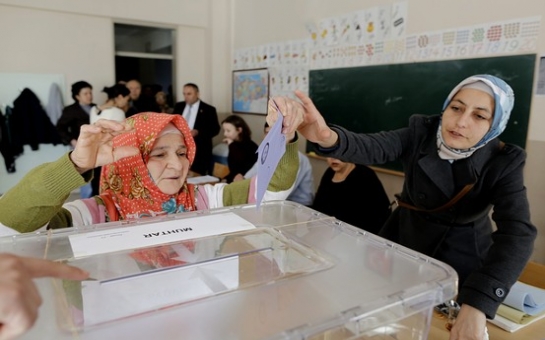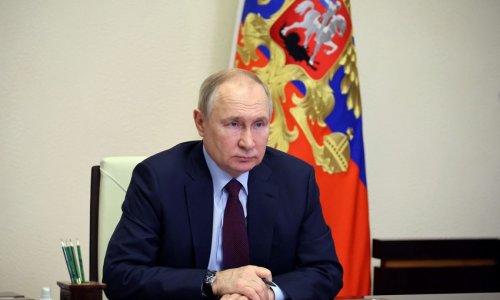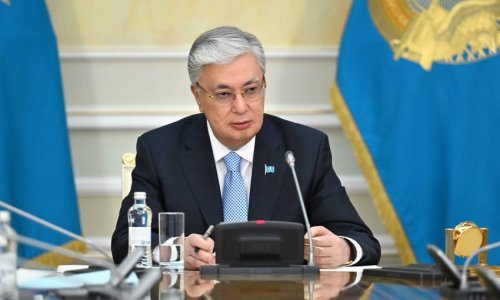Late last month, Turkish Prime Minister Recep Tayyip Erdogan took part in the opening ceremony of a new soccer stadium in Istanbul. Rather than simply cut a ribbon, Erdogan -- a standout amateur soccer player in his youth -- put on a team jersey and went down to the field to play a friendly match. After his team fell behind by three points in the match, which was being broadcast live on television, the 60-year-old PM incredibly found a way to score three goals in 15 minutes, against a goalkeeper who plays in Turkey's top tier professional league no less.As Turkey heads towards a presidential vote this Sunday -- the first one in which the people, rather than parliament, will elect the new president -- Erdogan's hat-trick performance seems emblematic of the way the campaign has been playing out. Despite the presence of two other substantive candidates, Erdogan has been dominating the field, receiving the lion's share of the state television broadcaster's attention. A fawning pro-government press, meanwhile, has been dutifully reporting about the PM's every move and utterance, imbuing them with an almost otherworldy quality (in the case of Erdogan's soccer game performance, one paper declared "his style was likened by some....to Barca star Lionel Messi."). The sense of inevitability that has been developed around the idea of Erdogan becoming Turkey's next president has sadly obscured the issue of just how consequential an election this is, both for Turkey's future and the quality of its democracy. By becoming president, Erdogan hopes to not only extend his time on the Turkish political stage but also turn the office into that of a powerful executive, something not currently envisioned by Turkey's constitution.As columnist Joost Lagendijk explains in Today's Zaman, the stage is being set for likely political turmoil:Turkey is entering an experimental, unpredictable period in which an overconfident and bullish president will start looking for the boundaries the present Constitution forces upon him and will push to get rid of them or, if possible, overrule them. In the most likely scenario, that will pit President Erdoğan against a Constitutional Court that will be called upon, sooner rather than later, to interpret the existing Constitution and make it clear where Erdoğan's ambitions contravene the text and the spirit of the present constitutional rules. I would not be surprised if that clash dominates Turkey's domestic agenda in the next couple of months.Beyond the constitutional problems of Erdogan trying to create a more powerful presidency, there is the issue of Erdogan's growing autocratic style and how being given the reins to even more power will impact the centralization of the Turkish state under him. As Lehigh University professor and Turkey expert Henri Barkey suggests in a recent piece on the Al-Monitor website, the first year of an Erdogan presidency could see dramatic changes for Turkey's political system:Once he assumes the presidency, the first six to 12 months are the most critical. Sometime after Erdogan resigns from the leadership of the ruling party, the Justice and Development Party (AKP) will have to convene an extraordinary convention to choose a new party leader who will then get the AKP ready for national elections in 2015. Until then, the country will have a prime minister handpicked by Erdogan. This person will have none of the experience and power Erdogan has accumulated over the last 12 years. Therefore, it is not unrealistic to assume that Erdogan will shape and direct and constantly interfere in government decision-making.Erdogan’s 12-month strategy is to engineer, de jure or de facto, as much of a transfer of power from the prime minister’s office to the presidential palace as he can. The size of the mandate is important because it will enable him to run roughshod over the party, parliament and weak interim prime minister….….In short, Turkey is facing the prospect of being transformed from a one-party and one-man state to simply a one-man state under an Erdogan presidency.With Erdogan looking like the probable winner of Sunday's vote, his supporters are already hailing his coming ascendance to the presidency as yet another in his remarkable string of political victories going back to 2002, when his Justice and Development Party (AKP) first came into power, and as an important landmark in the development of Turkey's democracy. But, considering the challenges an Erdogan presidency is going to present for Turkey's already polarized political system, for its diminished foreign policy and for the viability of its democratic credentials, his victory might ultimately be come to be seen as goal Turkey scored against itself.(eurasianet.org)Bakudaily.az
What Sunday's presidential election means for Turkish democracy? - OPINION
World
20:30 | 07.08.2014

What Sunday's presidential election means for Turkish democracy? - OPINION
By Yigal Schleifer
Follow us !










